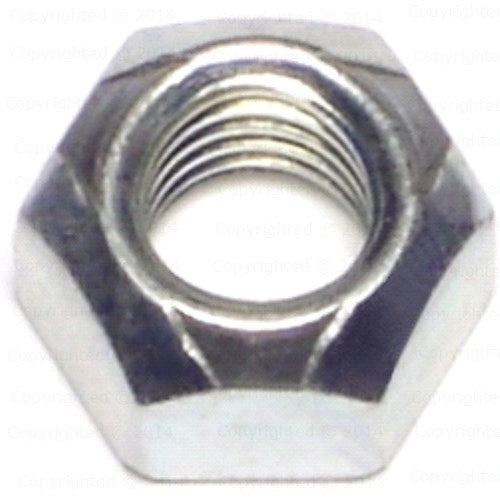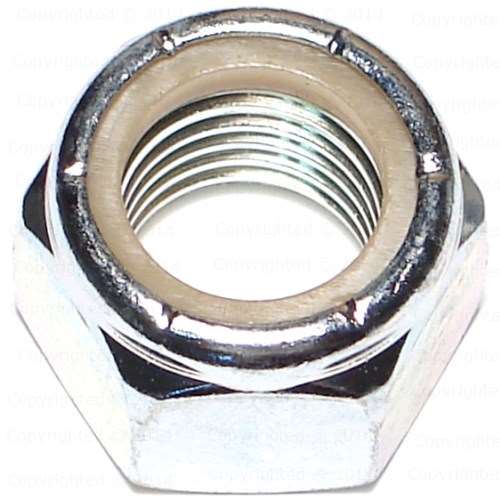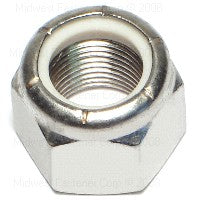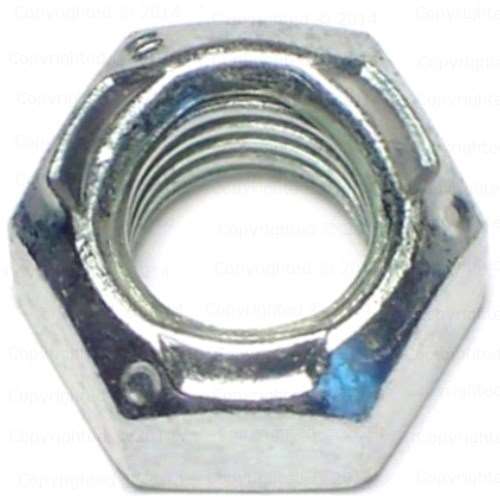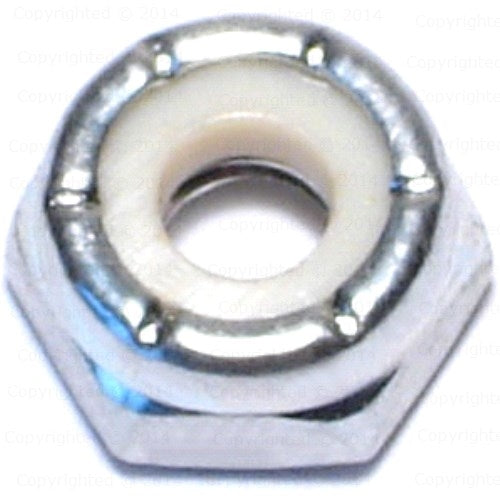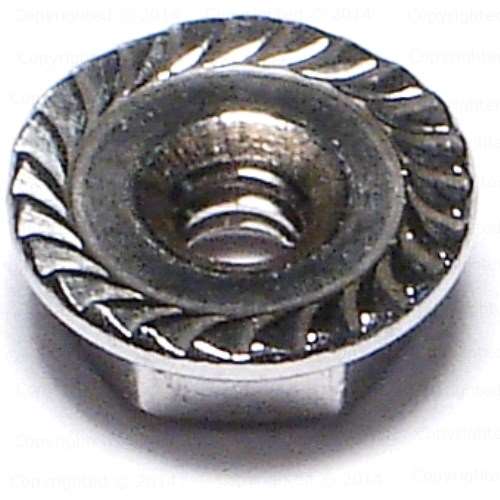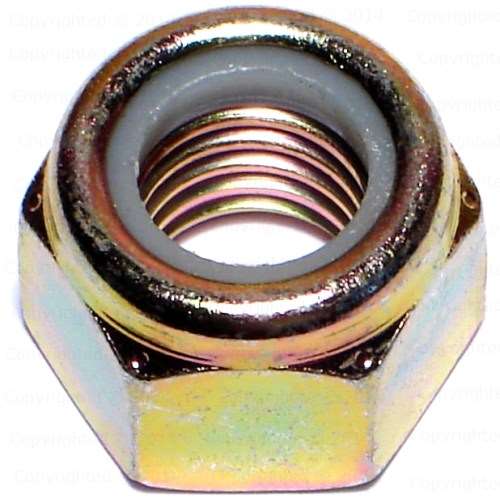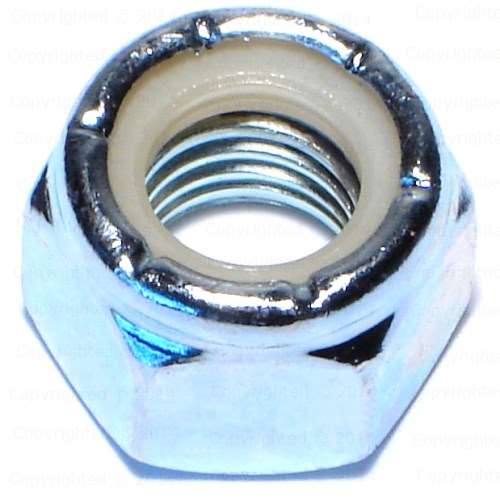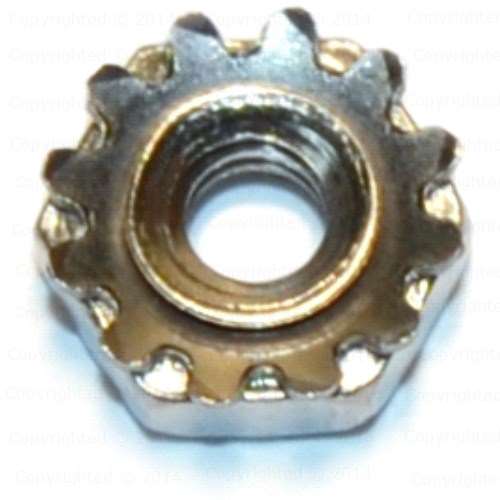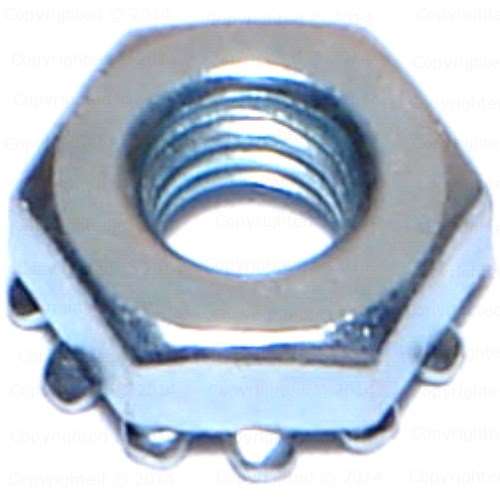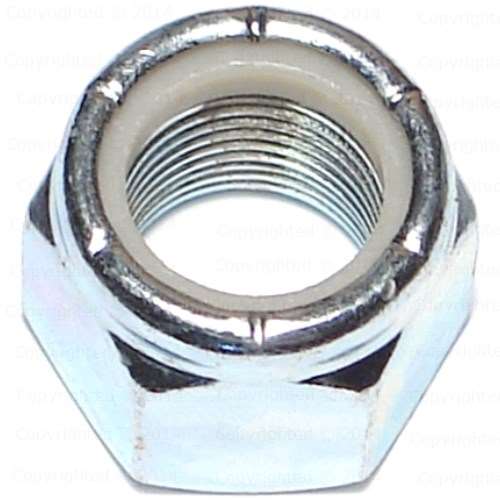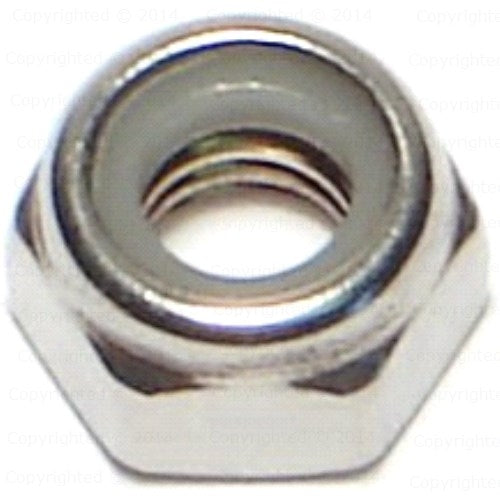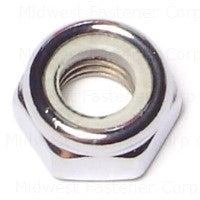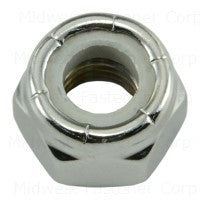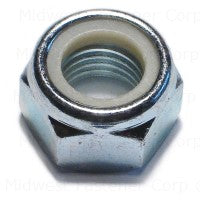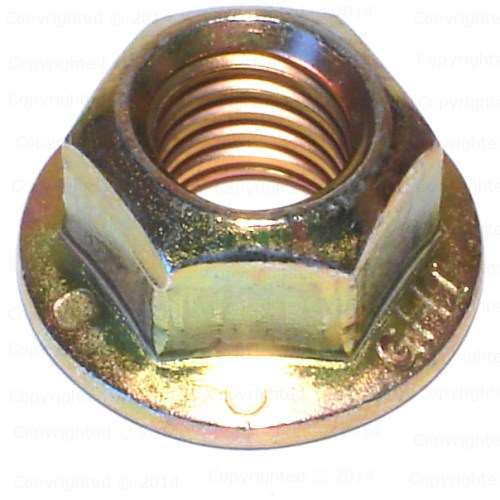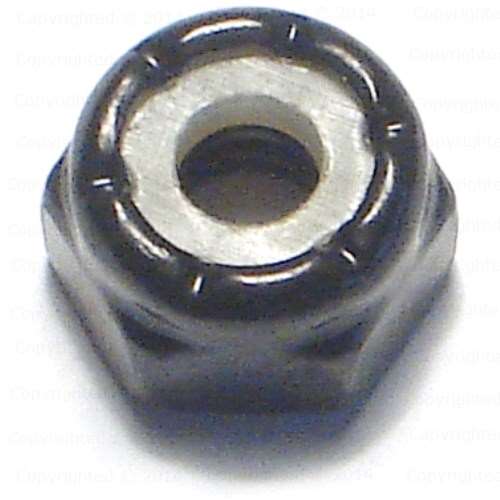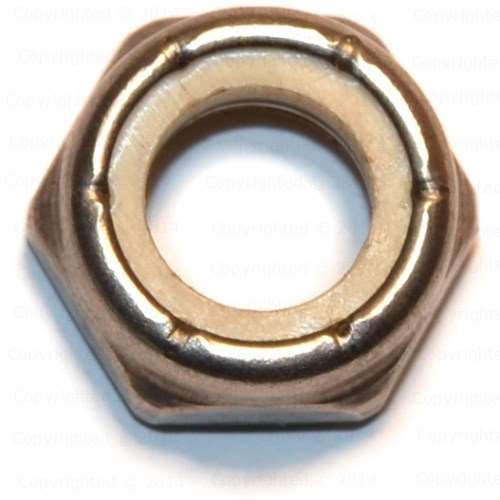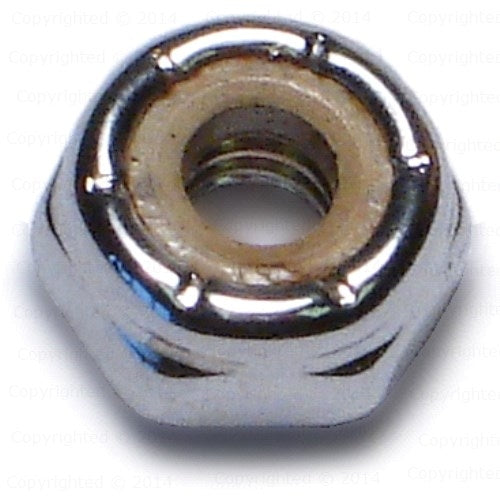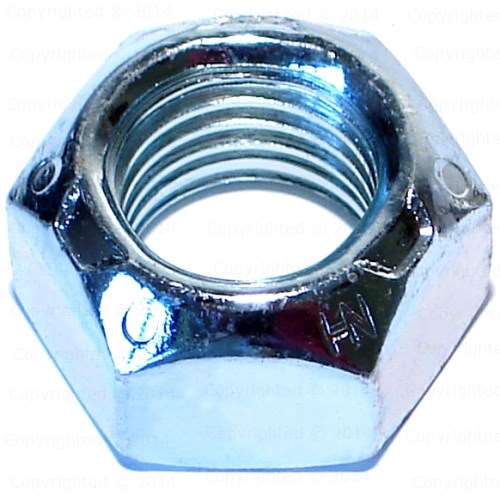20 Products
Unlike traditional nuts with basic threaded holes, lock nuts have unique designs to prevent loosening under vibration. Common varieties include metal nuts using friction and nylon insert lock nuts with polymers. The nylon fibers expand to grip the bolt, while metal lock nuts secure bolts through various mechanisms.
Nylon Insert Lock Nuts have an internal nylon layer that threads onto the bolt, creating pressure to prevent loosening. The nylon makes them temperature and chemical sensitive, requiring tools for installation.
Prevailing Torque Lock Nuts feature a built-in cone mechanism creating friction between mating threads. Requires wrenching due to rotational resistance during assembly and disassembly.
Serrated Flange Lock Nuts contain an integral flange with serrated backside, commonly used with metal sheeting. Serrations prevent backing off when tightened.
Keps Lock Nuts have movable wings and a free-rolling washer. Requires careful tightening, as over-tightening crushes the washer and compromises locking function.

